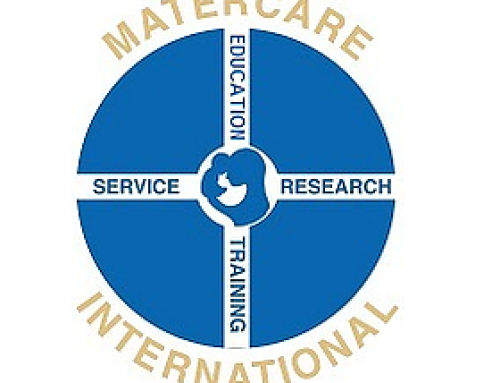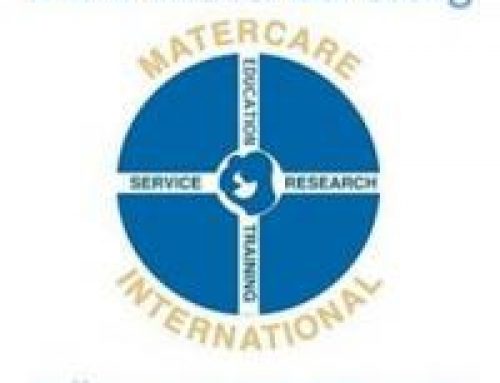Prof. Bogdan Chazan
Pro – Right for Life Foundation
Polish Society of Catholic Physicians
MaterCare International
Abortion Law in Poland
Life is a fundamental value, and its inviolability should be protected by law. The right to life also applies to children who have not yet been born. Permitting the killing of unborn children will inevitably devalue the life and dignity of all people.
Tens of millions of children die each year as a result of abortion. Many governments not only allow but also promote the killing of children in their mothers’ wombs. One may wonder how it is possible that in countries where abortion was treated as a crime for centuries, it is now considered a human right. This is the result of a massive propaganda campaign that began in Europe in the second half of the 19th century and developed in the 20th century. Abortion advocates, with the help of the media, have convinced part of society that a child in the womb is just a “clump of cells” or “tissue.” With such an approach, abortion is seen as a trivial procedure comparable to removing a pathological growth from a healthy organ.
Starting from the 1960s, acceptance of abortion in Western societies systematically increased. Although the invention of the ultrasound revealed the lies denying the humanity of unborn children, media controlled by abortion advocates did not allow this truth to be widely disseminated. Abortion is sometimes considered a benefit for the woman, but it is a cruel murder of a child and a procedure that damages the physical and psychological health of the mother.
Saint John Paul II, in Chapter 71 of the encyclical “Evangelium Vitae,” states that “the right to life belongs to every human being from the moment of conception until natural death, and under all conditions, regardless of whether they are healthy or sick, fully able or disabled, rich or poor.”
The Constitution of the Republic of Poland guarantees every human being the right to life, and the Act on the Commissioner for Children’s Rights states that a child is a human being from the moment of conception. If an embryo or fetus is a child, it is certainly a human being.
In 1956, during communist times, the Warsaw Pact countries, including Poland, enacted laws that allowed for abortion on social grounds, practically on demand. Hundreds of thousands of prenatal killings were performed annually. Gynecologists who refused to perform abortions were fired. Soon, similar solutions were adopted by Western countries.
In 1993, after the fall of the communist regime, Poland enacted new abortion laws that were in effect, with some changes, until 2020. Abortion was permitted in cases of diagnosis or suspicion of fetal abnormality or defect, when the pregnancy threatened the life or health of the mother, or when there was reasonable suspicion that the pregnancy was the result of a prohibited act. The promotion of natural family planning methods was introduced. The requirement to teach abortion procedures was removed from the gynecology and obstetrics specialization program.
Contrary to liberal predictions, the new law did not cause a surge in illegal abortions and maternal deaths. The number of spontaneous miscarriages, teenage pregnancies, and infanticides did not increase. On the contrary, after its introduction, the rates of prematurity, perinatal mortality of fetuses and newborns, and maternal mortality began to decrease more rapidly. Subsequent attempts to amend the law to facilitate access to abortion, made between 1994 and 1997, only brought limited or short-lived results. In a 1997 ruling, the Constitutional Tribunal stated that attempts to restore abortion on so-called social grounds “violate constitutional guarantees for human life, and the legal order must respect the inviolable and inherent rights of humans, including primarily the right to life.” The law returned to the 1993 state with some changes unfavorable to life protection.
Law enforcement turned a blind eye to cases of illegal importation of drugs for pharmacological abortion, and feminist organizations involved in this activity rarely faced trouble. Abortion tourism to other countries took place without hindrance. The number of illegal abortions was estimated at 20,000-30,000 per year, while the figure ten times higher, cited by liberal women’s organizations, was not based on reliable foundations. The Institute of Mother and Child’s meticulous analysis of maternal deaths related to pregnancy and childbirth reported an annual number of 3-5 per 100,000 live births. This rate was and still is better than in most European countries, indicating a good level of obstetric care in Poland. No maternal death due to abortion was recorded. Therefore, the reduction in the number of abortions caused by the current law contributed to the good reproductive health of Polish women.
The conscience clause concerning medical professionals was generally respected, and doctors were not directly forced to perform abortions. However, in many hospitals, invoking the clause to a superior was frowned upon and resulted in various forms of repression, such as slowing down medical specialization studies. The situation was and still is difficult for heads of departments and hospital directors, whose freedom of conscience was not respected. Attempts to refuse participation in the abortion procedure, citing the conscience clause, were met with severe treatment and dismissal from work, as I experienced in 2014.
In 2020, the Constitutional Tribunal ruled that killing an unborn child due to its disease or congenital defect is unconstitutional. One of the three circumstances allowing for legal abortion ceased to apply. The Government in Poland soon passed the “For Life” Act, which, although insufficiently, supports families where the mother was diagnosed with a disease or congenital defect of the child. Financial aid is provided, and access to medical and psychological care is facilitated. A network of centers offering perinatal palliative care for sick children before and after birth, their mothers, and the entire family was established. Pediatric hospices for seriously ill children were created. In 2022, 161 abortions were performed within the public health system. In 2019, before the Constitutional Tribunal’s ruling, the number was 1,110.
In 2022, two cases of maternal deaths due to septic miscarriage occurred in Poland. Supporters, especially advocates of restoring broad access to abortion, decided to use these cases for their propaganda purposes. Clinical proceedings in these cases, conducted by specialist supervision and prosecutorial authorities, revealed that the cause of maternal deaths was improper medical conduct. However, abortion activists claimed that it was a good moment to link these tragic events to the Constitutional Tribunal’s ruling banning eugenic abortion, despite the lack of logical connection. They argued that doctors caring for sick mothers did not take proper action out of fear of being accused of illegal abortion, citing a “chilling effect” from the current abortion law. There was no such case in Poland. Encouraged by recent events in Ireland, liberal circles, left-wing parties, and feminist organizations in Poland sought to use maternal death cases for political purposes. In Ireland, a similar maternal death case and subsequent social protests led to the adoption of new abortion laws facilitating access to abortion.
Mass protest marches, even street riots, attacks on churches, and disturbances of services began in Poland. Demands were made to change the abortion law. However, these efforts did not achieve the expected goal, did not gain social support, and soon faded.
In modern obstetrics, abortion is not necessary. With today’s advances in medical knowledge and technology, carrying a pregnancy and delivering a child by a sick mother does not pose greater risks than the abortion procedure. Situations where, during saving the life of a pregnant woman experiencing serious complications, the unintended death of her child occurs is not abortion. The direct aim of abortion is to kill the unborn child. Situations where a child dies as a result of life-saving actions for the mother are not regulated by abortion law. Therefore, to avoid maternal deaths, what is needed is not a change in abortion law but an improvement in the quality of obstetric care and training of medical staff in the proper interpretation of the law.
After the parliamentary elections held in Poland last autumn, power was taken over by liberal, folk, and left-wing groups. One of the first announced legislative actions was to liberalize abortion laws. Four bills were formulated, but none of them have a chance of becoming law due to the announced veto of President Andrzej Duda, whose term ends in the autumn of next year. The most far-reaching bill, formulated by the left, proposes free access to abortion before the 12th week of pregnancy and, in certain cases, even just before birth (partial-birth abortion). Under the slogan of decriminalization and depenalization, the criminal code is to be changed and abortion on demand introduced. A war against humanity has been declared, aiming for the victory of the civilization of death, where the right to life is to be transformed into the right to kill. Various international organizations will freely distribute pharmacological abortion agents. Mothers pressured by their surroundings will take them at home, without medical supervision, without ultrasound examination, which could diagnose an ectopic pregnancy. Severe complications, suffering, and maternal deaths can be expected. The presidential veto will delay the implementation of these plans for a year. Today, the Government rejected the bill to decriminalize abortion, which aimed to introduce abortion on demand in Poland, with 218 votes against 215. The presidential veto will not be necessary. Sursum corda!
Abortion advocates are in a hurry, so they came up with another idea. In cases of unplanned pregnancy, the mother can request an abortion citing psychological stress caused by the pregnancy and a threat to her mental health. There are hospitals in Poland where abortions are performed for this reason, in one hospital based on mass-issued certificates from a local psychiatrist that pregnancy caused adaptive disorders in mothers.
The Minister of Health announced that all obstetric-gynecological departments must perform abortions under the circumstances provided by law and employ at least one doctor who does not use the conscience clause. All hospitals must be equally involved in killing the unborn. Draconian financial penalties have been imposed on hospitals that did not engage in killing children with sufficient efforts.
Compared to most European countries, Polish law has so far better protected unborn life. This is likely to end, as the new government, urged by the European Union, seeks to remove all obstacles to abortion access. In the future, we face the mass killing of our brothers and sisters. The demographic crisis will intensify, leading to deterioration in reproductive, physical, and mental health of women and the health of future generations of Poles. Many of us deeply believe that a time will come when hearts and minds are awakened. May it come as soon as possible.
July 11, 2024
Bogdan Chazan







